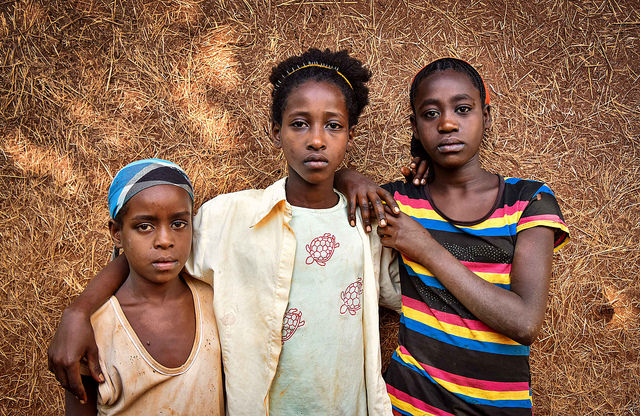Menstrual Hygiene for Girls in Africa
 Menstruation is a normal part of being a young woman, but many feel ashamed and often won’t go to school because of it. Silence about the issue has also led to poor reproductive health practices and gender disparity in the workforce. However, some people have chosen to speak out. In honor of Menstrual Hygiene Day on May 28, the World Association of Girl Guides and Girl Scouts (WAGGGS) partnered with U-Report Global to promote discussion about the struggles that come with being a girl. This collaboration has challenged the stigma surrounding menstruation and sought to reinvent the societal norm.
Menstruation is a normal part of being a young woman, but many feel ashamed and often won’t go to school because of it. Silence about the issue has also led to poor reproductive health practices and gender disparity in the workforce. However, some people have chosen to speak out. In honor of Menstrual Hygiene Day on May 28, the World Association of Girl Guides and Girl Scouts (WAGGGS) partnered with U-Report Global to promote discussion about the struggles that come with being a girl. This collaboration has challenged the stigma surrounding menstruation and sought to reinvent the societal norm.
Menstrual Hygiene Day
Menstrual Hygiene Day was founded by a German nonprofit called WASH United. The movement promotes advocacy for women’s reproductive health and urges political leaders to make it a priority. Advocacy efforts have ranged from individual voices to nonprofit organizations to government agencies. Participation has increased with every year. In 2016, 34 countries held 180 events, growing to 54 countries and 350 events in 2017. This year, 475 events were hosted in 70 countries.
U-Report Global, created by UNICEF, is a mobile platform that encourages youth to use social media to discuss issues relevant to their communities. The goal is to give kids the power to create social change and promote democracy among political leaders. Some countries have already seen the impact of U-Report’s polling system. In Liberia, 86 percent of U-Reporters said that “sex for grades” is a prevalent issue in their schools. Because of this, UNICEF staff met with the Minister of Education about how to address the problem.
Giving African Women a Voice
In alliance with U-Report’s mission, WAGGGS has used polls to give young women in Africa a voice. The results show that 59 percent of female respondents reported receiving an adequate amount menstrual education, 31 percent reported not having enough education, and 11 percent said they had received none. One in five girls had said the taboo subject of menstrual hygiene prevented them from seeking proper sanitary products. The polls also reported one in three respondents believing that menstruating women get unfair treatment. These results were used to encourage decision makers to offer more support to menstruating girls and encourage their school attendance.
Other groups like Speak Up Africa have contributed to the empowerment of young girls by providing menstrual education. They set up classes at the National Girls’ Camp in Sierra Leone, which dedicates itself to promoting a positive self-image and making smart decisions about reproductive health. First Lady H.E. Sia Nyama Koroma oversees this camp and other programs to benefit girls.
Respondents in Africa have told U-Report that girls should not feel ashamed of something that is normal. Many believe in the power of education to not only teach girls about menstrual health but let everyone know that it’s not dirty. Testimonies on WAGGGS show that the health of menstruating girls involves more than just teaching them how to use a pad; it’s about addressing gender inequality too.
– Sabrina Dubbert
Photo: Flickr
